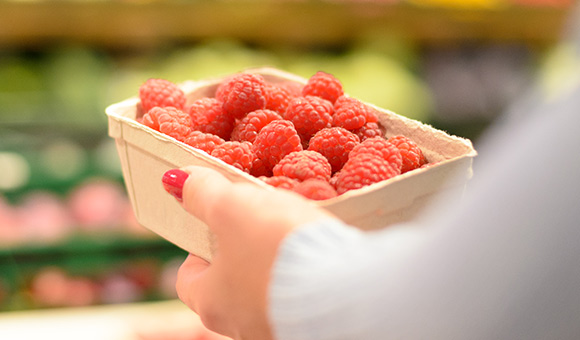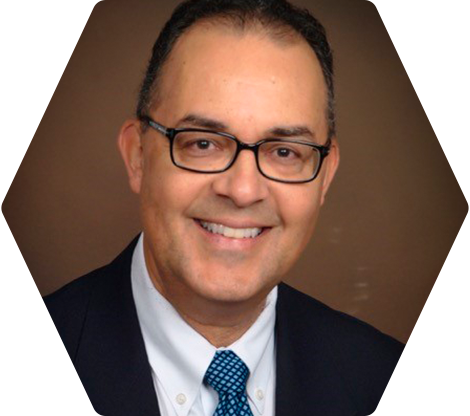
For most of our lifetimes, plastic articles have been used for food service applications. Molded plastics and Styrofoam have been commonly used for utensils, plates, clam shells, trays and other food service containers. They provide excellent functionality and convenience.
However, the negative impact of these materials on the environment can no longer be ignored, and alternative solutions must urgently be developed as replacements.
Single-use plastic and Styrofoam containers have very low recycling rates. Consider the recyclability data for paper, plastic and Styrofoam from EPA.gov:
- Corrugated boxes were recycled at 67.3 percent in 2000 and rose to 96.5 percent in 2018.
- Polyethylene terephthalate (PET) bottles were recycled at a rate of 22.1 percent in 2000 and only 29.1 percent in 2018.
- In 2018, 80 thousand tons of Stryrofoam containers were generated, and a negligible amount (less than 5,000 tons) was recycled in the United States.
So, if plastic and Styrofoam are not being recycled, are they compostable or biodegradable? The short answer is no. While some bio-based plastics, such as PLA (polylactic acid), are compostable, unrecycled plastics and Styrofoam that get delivered to landfills will not break down, degrade or decompose easily. Many of these items not captured in the waste stream will journey to oceans and waterways, where they are significant causes of pollution.
The Environmental Protection Agency (EPA) has a list of frequently asked questions about plastic recycling and composting that provide additional answers about the (lack of) compostability of these materials.
Regulatory and Brand Owner Action
Because of the issues described above, regulatory agencies around the world are taking action to limit or ban the use of single-use plastics and Styrofoam.
Among the most important is the EU Single-Use Plastics Directive, or SUPD, which was passed in June 2019 and came into force on July 3, 2021. Annex B of the Directive lists the single-use plastic items facing restrictions as of the enforcement date. The list includes items frequently found on beaches:
- Cotton bud sticks, except those for medical use
- Cutlery (forks, knives, spoons, chopsticks)
- Plates
- Straws, except those for medical use
- Beverage stirrers
- Balloon sticks
- Expanded polystyrene food containers, beverages containers, and cups.
Additionally, there are several initiatives at the federal, state and local levels aimed at reducing pollution from single-use plastics and Styrofoam. In January 2020, McKinsey published “The drive toward sustainable packaging – beyond the quick wins” and summarized the legislative landscape as follows:
Approaches for Minimizing and Managing Packaging Waste
Australia
China
India
Canada
European Union
United States
Source: McKinsey & Company
In addition, brand owners are taking action. Major brands such as Starbucks, Nestle, Chipotle, Burger King, Taco Bell and Mars have announced goals to make their food packaging recyclable, reusable or compostable with lower amounts diverted to landfills. This shift and focus to more sustainable packaging means that the supply base must develop economically and functionally viable alternatives to many of the packaging solutions used today.
Molded Fiber – A Sustainable Alternative?
Molded fiber articles are a more eco-friendly alternative to single-use plastics and Styrofoam because they are recyclable, compostable and biodegradable. However, molded fiber articles require chemical treatment to provide the needed functionality, including water and grease holdout, for food service applications.
Until now, the material of choice for water and oil/grease holdout has been PFAS, which stands for per- and polyfluoroalkyl substances. These manmade chemical substances don't break down naturally in the environment. Although they perform very well in food service applications, they are under intense scrutiny for health and environmental risks. In October of this year, the EPA published the PFAS Strategic Roadmap to reduce the harm and risk of these chemicals to people and the environment. Other governments around the world are taking similar steps.
Studies on adverse health regarding using PFAS in molded fiber articles are still ongoing, meanwhile, there are now limits on the amount of PFAS that can be added to articles and still claim compostability. In fact, the Biodegradable Products Institute (BPI), which reviews and certifies compostable products that meet ASTM D6400 and ASTM D6868 conditions for compostability, no longer certifies any products that have more than 100 parts per million (ppm) of total fluorine (measured because it is an element found in PFAS compounds).
Typically, PFAS levels in molded fiber articles are greater than 1000 ppm to provide suitable oil and grease holdout — far higher than the BPI threshold. As a result, the use of PFAS in food service articles will likely be phased out over the next few years globally.
Clearly, if molded fiber articles are to become serious contenders to replace plastics and Styrofoam in food service applications, the paper and board industry must find and validate an effective alternative to PFAS. This alternative must deliver functionality for water, oil and grease holdout in real-world applications, be easy-to-apply, be cost competitive and be readily available to producers around the world.
An Environmentally Friendly Alternative to PFAS
The shift from plastics and Styrofoam to molded fiber can be enabled by PFAS-free alternatives, but what does that look like? In general, this can be accomplished by replacing long-chain PFAS and its potential precursors with either physical or chemical alternatives. Physical alternatives could include cellulose-based products or even aluminum laminates.
Chemical alternatives could include shorter perfluoroalkyl chains or non-perfluoroalkyl products. In the latter category, Solenis has developed an innovative PFAS-free solution for molded fiber food service applications that incorporates water-based synthetic biopolymers. Marketed under the name Contour℠, the technology is customizable based on the type of raw materials used (e.g., hardwood/softwood, recycled paper, agricultural waste, bagasse) and molded fiber process conditions. It is fully food contact compliant and can be added to the pulp slurry without the need for additional capital equipment. For typical food service applications (plates, bowls, clamshells, utensils), it allows the producer to achieve the desired functionality at a competitive cost.
PFAS-free barrier technologies such as Contour℠ will allow brand owners and producers of food service packaging to invest in molded fiber and deliver more eco-friendly solutions that help meet their sustainability goals. By investing in molded fiber production equipment, producers have the choice to build packaging supply points locally, reducing freight and shipping costs, and build packaging on demand, which offers additional sustainability benefits.
Win-Win-Win
Molded fiber articles incorporating PFAS-free chemicals help to deliver recyclability, compostability and biodegradability while delivering the functionality consumers expect. That’s a win for consumers, a win for the planet and a win for papermakers. With a validated alternative to PFAS in place, molded fiber producers can offer brand owners the solutions they have been looking for to replace single-use plastics and Styrofoam for food service applications, helping them stay competitive and poised for significant growth.
